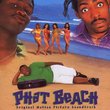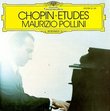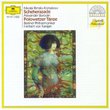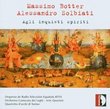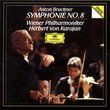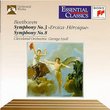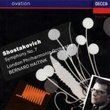| All Artists: Johannes Brahms, Mstislav Rostropovich, Rudolf Serkin Title: Brahms: The Cello Sonatas Members Wishing: 0 Total Copies: 0 Label: Deutsche Grammophon Release Date: 10/25/1990 Genre: Classical Styles: Chamber Music, Instruments, Strings Number of Discs: 1 SwapaCD Credits: 1 UPC: 028941051028 |
Search - Johannes Brahms, Mstislav Rostropovich, Rudolf Serkin :: Brahms: The Cello Sonatas
 | Johannes Brahms, Mstislav Rostropovich, Rudolf Serkin Brahms: The Cello Sonatas Genre: Classical
No Description Available. Genre: Classical Music Media Format: Compact Disk Rating: Release Date: 1-JAN-2002 |
Larger Image |
CD DetailsSynopsis
Product Description No Description Available. Genre: Classical Music Media Format: Compact Disk Rating: Release Date: 1-JAN-2002 Similar CDs
Similarly Requested CDs
|
CD ReviewsTHIS ONE WILL GROW ON YOU DAVID BRYSON | Glossop Derbyshire England | 08/14/2003 (5 out of 5 stars) "The balance is not quite right, with the cello too prominent, but once I got used to that the performances started to take me over. Here we have two of the greatest classical interpreters of their time taking us into the special world of Brahms, and they had me thinking about the composer in a way I have not done in years. Most books and articles I have read about him have a lot to say about Beethoven, but I really doubt whether Brahms's music would have been much different if Beethoven had never lived. Both consciously and by instinct, Brahms was the guardian of the great German musical tradition embodied above all in Bach -- a tradition where pure 'absolute' music expressed itself through an intellectual apparatus of polyphonic and structural devices. Since Bach's time Haydn and Mozart had perfected for instrumental music a compositional system usually called the 'sonata' style. Beethoven had naturally picked this up, but what he forced on to it was a special dimension of highly personalised expression, and it is precisely this way of treating it that Brahms turned his back on. With him we are back, in his own deeply original way, to music using the composer to express ITself. I seem to find that Brahms gets more instinctive understanding from performers than Beethoven does, and I believe quite simply that that is because he understands himself better than Beethoven does himself. Teetering on the verge of incoherence at times was all part of Beethoven's unique greatness, and it is not disrespectful -- quite the reverse -- to say so. I have heard far more good performances than bad ones of these two wonderful sonatas, and the special meaning these particular accounts have for me is not something that I felt at first hearing. When a pianist of very special and unusual gifts is aged 80 or so and has retained his technique and evenness of touch, when he has spent a lifetime developing an austere and uncompromising vision of the instrumental music that we normally think of as being the 'greatest', when he studies completely afresh the works he is to perform with the greatest cellist of the next generation, there is a good chance we are going to get something very special, and I do not believe I am imagining it. This is a totally unique artistic combination offering a very special -- not eccentric in any way but still very special -- insight into a composer that many of us know by heart without really getting our minds round the phenomenon he represents. This record is a milestone in my musical pilgrimage and maybe it will be in yours." When the Rich Russian Sound Meets the Soulful German.... stradgirl | Toronto, ON | 04/10/2001 (5 out of 5 stars) "From the very first note of the e minor sonata, one can notice how perfectly the warmth and control in Rostropovich's sound match the cogitating works of Brahms. In such maturiy and wisdom gained over many a decade, there are things to learn from this recording. The full and rich, yet sensitive tone draws the listener through every movement with assuarance and thrill, and the complete control -- especially apparent in the unhurried tempi -- of both of these maestros should be especially admired. Of course, control and maturity do not mean lack of passion and vigour by any means; the series of robust broken chords of the first movement of the E minor sonata, and the passionate third movement of the F major sonata are no less powerful than any younger perfomers' recordings, if not greater. This is a recording to be enjoyed and studied by all." Wine is at the height of it's maturity................... yazdanbuksh | Pune Maha. India | 07/24/2000 (5 out of 5 stars) "I think the heading says it all, the two are fantastic though the recording does place the cello of Rostropovich ahead of the piano, but, not to the extent that it drowns the instrument all together. Here is a perfect example of mature understanding between the two players which can at times only come through a maturity in age, which brings about understanding and lots of experience. Brahms music is symphonic in nature and any good musician will know that these two sonatas are symphonic in nature, in the second sonata you can actually here the orchestra playing, humming along......... They say that Brahms music takes the listner to a heigher level of understanding and intellictual maturity, well beleive me you. As for a little bit of history about this recording, Rudolf Serkin started learning to play these sonatas at the tender age of 75. When you hear this recording picture 2 elderly gentlemen (masters of their instruments) and Brahms in the background..............I'll bet listning to his own work."
|

 Track Listings (7) - Disc #1
Track Listings (7) - Disc #1